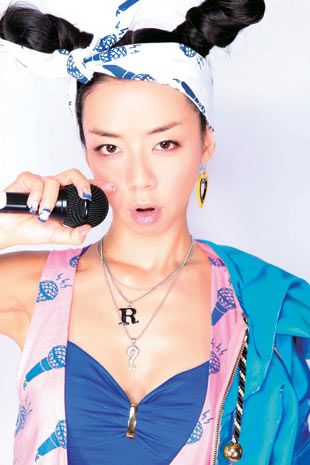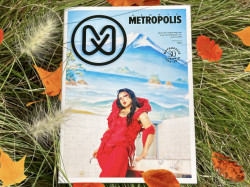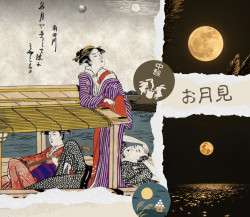
Originally published on metropolis.co.jp on November 2009

Courtesy of Popgroup
Rumi isn’t conventionally cute or still in high school. This is worth pointing out, because in a less imperfect world—one where those factors weren’t preconditions for pop success—she’d be a bona fide star. The pint-sized 31-year-old is one of the best rappers in Japan, period, possessed of an invincible flow and a stage persona that’s larger-than-life without ever teetering into obnoxiousness. Metropolis spoke with her on the release day of her latest album, Hell Me Nation.
How did you get into MCing in the first place?
The moment I felt like I wanted to do it myself was when I went to this event organized by [rapper] Twigy, and heard Japanese freestyle for the first time. Up until then, the music I’d heard hadn’t had any connection with current affairs—it was all about love and dreams for the future and stuff like that—but this was different. It was after the Aum Shinrikyo attack, and Twigy dropped that straight into his freestyle. I was really surprised by that, and it inspired me to have a go myself. Mind you, ever since I was a kid, I’ve enjoyed writing about how I feel. I was always scribbling in notebooks, but I’d never had any sense of how I’d use that material. Then I saw Twigy, and it all clicked… kind of.
Were there other female MCs around at the time?
There was a hip-hop boom going on when I was in high school—it was pretty fashionable. You’d find MCs and DJs at lots of schools, and normally there’d be a female MC in each of those crews. There were quite a lot of them, but they gradually faded away: by the time I hit 20, it was like everyone else had vanished. They’ve been increasing again recently, though. I think there are more female
MCs in Japan now than ever before.
When I went to one of your shows, the audience seemed like they were really feeling your lyrics. Would you say they’re “deep”? Nah, I don’t think they’re particularly deep. I try to approach how I’m feeling in a variety of ways: head-on, but also from different perspectives—like, “you could look at it this way too, you know…” Japanese people are used to being told what to do all the time—there are all these rules, “common sense” and what-have-you. Maybe people who have a rough time in life are surprised to find that there are other ways of thinking about things.
I showed the cover of your CD to a guy in my office, and he didn’t believe that you were an underground rapper. What’s with the image?
Most of the people making “underground” music don’t want to stand out, so they wear dark clothes and headgear. They think it’s cool, and they’re worried that they’ll get dissed if they wear something gaudy. I just can’t relate to that, though, so I wear stuff that’s loud and stupid.
I’m a bit hazy on the underground/major distinction anyway. Some of the songs on Hell Me Nation sound really pop to me…
I think it’d still be difficult to release this on a Japanese major. Why is that? It’s got to be love songs or stuff that’s easy to listen to. If Jay-Z was Japanese and making hip-hop here in Japan, he wouldn’t do well at all.
Hell Me Nation is out now on Popgroup Recordings. www.myspace.com/mcrumi
Club Asia
Kaikoo Vol. 14. Hip-hop, abstract: DJs Baku, L?K?O, etc. Live: Rumi, Bron-K, etc. Dec 19, from 10pm, ¥3,500 w/1d. Shibuya. Tel: 03-5458-2551. www.asia.iflyer.jp







